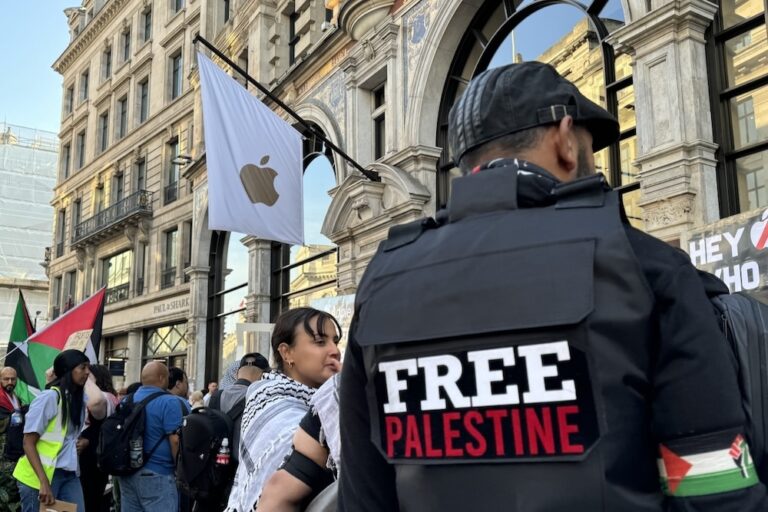(WAN/IFEX) – The following is a WAN press release: Press Reforms Needed in the Arab World Independent newspapers in the Arab world are demonstrating they can be commercially successful while maintaining their editorial independence. But to do so, they must negotiate a minefield. And for the vast majority of independent media in the Middle East, […]
(WAN/IFEX) – The following is a WAN press release:
Press Reforms Needed in the Arab World
Independent newspapers in the Arab world are demonstrating they can be commercially successful while maintaining their editorial independence. But to do so, they must negotiate a minefield. And for the vast majority of independent media in the Middle East, censorship and repression remain the norm.
Those were the lessons from the 2nd Arab Free Press Forum, which drew independent journalists and media executives from across the Arab world to Beirut, Lebanon, this week to address the challenges and opportunities facing Arab media.
Those challenges are enormous, as independent journalists and a growing number of bloggers risk arrest and imprisonment, physical attacks, financial ruin and even death for carrying out their professional activities.
But some newspapers are managing to combine editorial independence with commercial success under conditions that would drive an editor or manager to despair in the west.
“You cannot be revolutionary, you have to be evolutionary,” said Mohamed Alayyan, Publisher of Al Ghad, the largest independent newspaper in Jordan and the second largest overall. “You can’t say, ‘I’m going to turn the tables’, because it won’t get you anywhere and may get you into jail. It is important to adapt and you have to keep pushing the envelope slowly to get to your goal, to get to – if there is such a thing – absolute freedom of speech.”
But for every Al Ghad, there are harrowing cases of repression and abuse. The Arab Free Press Forum also heard from Abdel Vetah Abeidna, Editor-in-Chief of Al-Aqsa in Mauritania, who is living in exile because he faces a year in jail and a one million Euro fine – one million! – for accusing a businessman, in an investigative report, of helping to protect members of Mauritania’s flourishing drug trade.
“Where will I get one million Euros?” he asks. “In the Arab world, we feel like we’re so behind, so weak,” he said. “We feel like we’re living on a different earth than the people in France, or Britain, or in the United States. There, they write their opinions, their feelings, and this does not result in problems,” said Mr Vetah Abeidna.
Arab governments frequently promise media reform, “but the process of degradation and deterioration of media continues,” said Said Essoulami, Director of the Centre for Media Freedom in Morocco.
The Arab Free Press Forum, organised by the World Association of Newspapers and Lebanon’s An-Nahar newspaper, presented cases and testimony about the problems, and proposed solutions, for the independent press in the Arab world. Summaries of all the presentations can be found at http://www.wan-press.org/article15786.html
The Paris-based WAN, the global organisation for the newspaper industry, defends and promotes press freedom and the professional and business interests of newspapers world-wide. Representing 18,000 newspapers, its membership includes 77 national newspaper associations, newspaper companies and individual newspaper executives in 102 countries, 12 news agencies and 11 regional and world-wide press groups.


